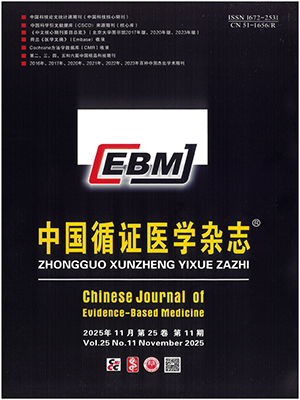Objective To evaluate clinical effects of strict control vs. conventional control of blood glucose in perioperative cardiac surgery.
Methods Databases including PubMed, EMbase, HighWire, The Cochrane Library, CBM and VIP were searched to collect the randomized controlled trials (RCTs) on strict control vs. conventional control of blood glucose in perioperative cardiac surgery, published from 2000 to 2011. Two reviewers independently screened articles according to the inclusion and exclusion criteria, extracted data, and assessed quality of the included studies. Then meta-analysis was performed using RevMan 5.1.
Results A total of 8 RCTs involving 2 250 patients were included. The results of meta-analysis showed that compared with the conventional group, the strict control of blood glucose could reduce postoperative short-term mortality (OR=0.52, 95% CI 0.30 to 0.91, P=0.02) and postoperative incidence rate of both atrial fibrillation (OR=0.64, 95%CI 0.43 to 0.96, P=0.03) and incision infection (OR=0.30, 95%CI 0.15 to 0.57, P=0.000 2), and shorten hospital stay (MD=1.75, 95%CI –3.18 to –0.32, P lt;0.02) and time of mechanical ventilation (MD=–0.9, 95%CI –1.43 to –0.38, P lt;0.000 8).
Conclusion Current evidence shows that the strict control of blood glucose in perioperative cardiac surgery can reduce postoperative short-term mortality and postoperative incidence rate of both atrial fibrillation and incision infection, shorten hospital stay and time of mechanical ventilation, and have important clinical values and social and economic significance. However, this conclusion has to be proved by more high-quality and large-scale RCTs for the limitation of quantity and quality of the included studies.
Citation: SONG Baohua,JIANG Pingjun,WANG Zhihong. Clinical Effects of Strict Control versus Conventional Control of Blood Glucose on Perioperative Cardiac Surgery: A Meta-Analysis. Chinese Journal of Evidence-Based Medicine, 2012, 12(10): 1229-1234. doi: 10.7507/1672-2531.20120191 Copy
Copyright ? the editorial department of Chinese Journal of Evidence-Based Medicine of West China Medical Publisher. All rights reserved




